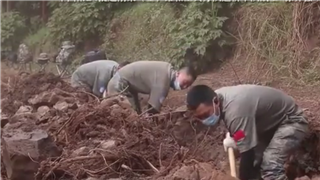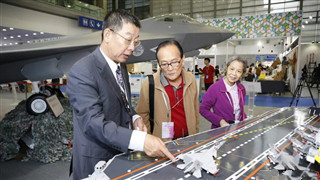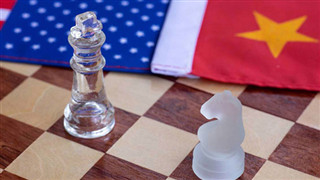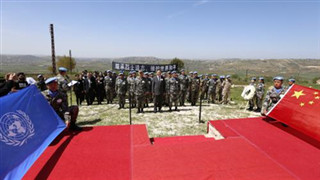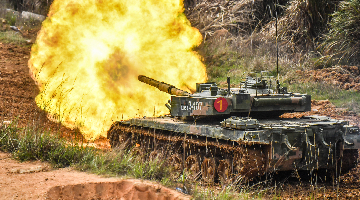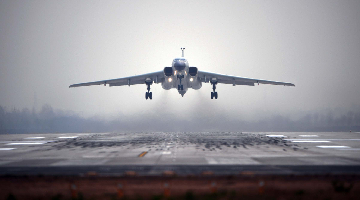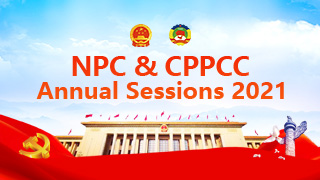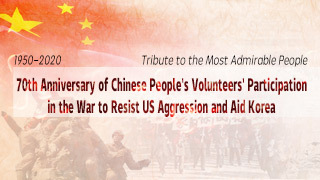By Wang Jin
Although President Biden vowed to help maintain the Iran nuclear deal when he ran for the presidency in 2020, no breakthrough has been made in the US-Iran relations in over two months after he took office. The Iran nuclear issue has become a strategic deadlock and an increasingly grave crisis that will keep simmering unless dialogue channels are rebuilt as soon as possible.
The hostility and mistrust between the US and Iran pose serious challenges to find a solution to solving the Iran nuclear issue
Iran mistrusts the US so that it won’t make major concessions to Washington within a short time. The moderates in Tehran that support communication with Washington are out-voiced by the hardliners, who, under the immense pressure imposed by the Trump administration, have called for accelerating the development of Iran’s national defense capabilities, especially nuclear strength so as to cope with the US-imposed strategic blockade.
The Iran-US relation further deteriorated after the assassination of Qassem Soleimani, Iranian major general and commander of the Islamic Revolutionary Guard Corps (IRGC), and that of Iran’s chief nuclear scientist Mohsen Fakhrizadeh. Iran’s hardliners and the conservatives swept the boards in the 2020 parliamentary elections and are likely to dominate the domestic political landscape in the four years to come. Under such circumstances, Tehran will hardly make any concession to the US, much less to take a pragmatic approach to the negotiations.
The US, on the other hand, mistrusts Iran just as much. In 2021, Iran seems to have taken the upper hand in the Yemen civil war and in sensitive topics over the Middle East, such as Syria and Iraq, and its rising regional influence is accompanied by the advancement of its missile technologies. Over the past few years, Iran’s missile technologies have made substantial progress, with its “Shahab” and “Sejil” missiles developing tremendous strategic deterrence. Iran’s multitudes of long-range missiles are also a Damocles’ Sword over the head of America’s Middle East allies like Saudi Arabia and Israel.
Europe has a critical role to play in breaking the deadlock between the US and Iran
Iran has placed high hopes on the EU. On the one hand, Iran needs massive investments and assistance from European countries for its economic and social development. On the other hand, it expects the EU, a signing party of the Iran nuclear deal and a strategic ally of the US, to mediate between Washington and Tehran.
But in reality, Washington expects the EU to understand its concerns over Tehran and help it persuade Tehran to expand the scope of negotiations to include such contents as restricting Iran’s missile technology development and regional influence. In contrast, the EU, France and Germany all hold that the Iran nuclear deal is an outcome of multilateral efforts, but America's unilateral withdrawal has ruined the foundation for negotiation, so Washington should lift its sanction measures and restart talks with Tehran on that basis.
While Iran hoped European countries could withstand US pressure and faithfully fulfill the deal, European enterprises pulled back from the Iran market around 2018, adding fuel to the flame of Iran’s economic plight. Iran asked Europe to take steps to help bring their enterprises back. However, European countries insisted that governments cannot decide the enterprises’ willingness of investment, not to mention that any European enterprise investing in Iran would suffer losses due to American sanctions. As a result, Europeans asked Iran to come back to the supervisory framework of the deal at an early date and relieve the international community of their worries.
Therefore, the US, Iran, and Europe have ground to a stalemate on the nuclear issue that seems impossible to solve once and for all. Due to opposition at home and interference from their allies, it’s hard for Washington and Tehran to start dialogue directly, and the only way to mitigate their mutual hostility is through the coordination of a third party, especially the EU, so they can resume contacts and negotiation through “indirect dialogue”. In the meantime, Washington has made a tough attempt to mend bilateral ties by means of reciprocal “small concessions”, hoping the US would lift sanctions and Iran would return to the nuclear deal.
There is a very narrow window period for solving Iran nuclear issue
The Iran general election will kick off in June, and a new administration will be formed in August. If the hardliners take power, Iran-US relations would probably freeze again, like during the reign of Mahmoud Ahmadinejad, Hassan Rouhani’s hawkish predecessor.
Meanwhile, European countries didn’t approve of Iran exiting the nuclear deal and beginning R&D of nuclear weapons even though they felt sorry for it being sanctioned. Before 2015, they joined the US in imposing economic sanctions on Iran to force it to stop its nuclear activities.
If no breakthrough is made in the Iran nuclear issue in the next few months and Iran’s nuclear weapon development is beyond international supervision, a new crisis is likely looming near. Israel has said many times it is closely watching Iran’s nuclear movements and has recently told the Biden administration that it is considering curbing Iran’s nuclear R&D through the use of force.
In a few months, a more severe turmoil and crisis may ferment in the more unstable and hostile Middle East – unless relevant parties can realize a substantial step forward on the Iran nuclear issue before that time.
(Wang Jin is an associate professor from the Institute of Middle Eastern Studies, senior research from the Syria Research Center of Northwest University of China, and research fellow of Charhar Institute in China.)
Editor's note: This article is originally published on myzaker.com, and is translated from Chinese into English and edited by the China Military Online. The information, ideas or opinions appearing in this article do not necessarily reflect the views of eng.chinamil.com.cn.
